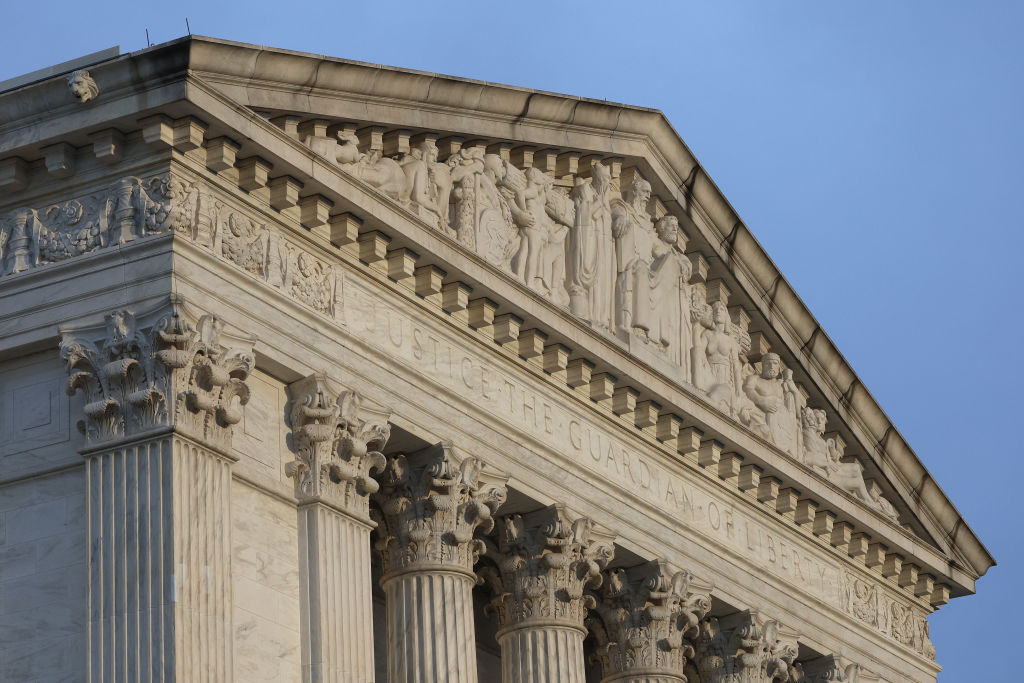Supreme Court allows restrictions on children’s access to social media to remain in place


The Supreme Court on Thursday turned down a request from a tech industry group to temporarily bar Mississippi from enforcing a state law that restricts access by young people to social media. In a brief unsigned order, the justices allowed the state to continue to enforce the law against major social media sites, including Facebook, Instagram, Snapchat, X, Reddit, and YouTube, while litigation continues in the lower courts.
Justice Brett Kavanaugh agreed with the decision to leave the law in place, but he suggested that “the Mississippi law is likely unconstitutional.”
Thursday’s order came in a dispute over a Mississippi law known as House Bill 1126. Enacted in 2024 after a Mississippi teen became the victim of sextortion on Instagram and died by suicide, the law requires young people to obtain their parents’ consent before they can create social-media accounts. For their part, social-media sites must verify the ages of their users and make efforts to protect young people from being exposed to harmful material. If the sites do not comply with these requirements, they can face both civil penalties of up to $10,000 per violation and criminal penalties.
NetChoice, a tech industry group that represents social-media companies like YouTube and Meta (which owns Facebook and Instagram) as well as internet sales giants like Amazon and Airbnb, went to federal court in Mississippi, arguing that the law violates the First Amendment.
U.S. District Judge Halil Suleyman Ozerden agreed and issued an order that temporarily prohibited the state from enforcing the restrictions against several of NetChoice’s members. Although Ozerden recognized that the state may have a “compelling interest in safeguarding the physical and psychological wellbeing of minors online,” he said the law likely still runs afoul of the First Amendment because it bars young people from gaining any access to social media unless they can obtain their parents’ consent, when it could achieve the state’s goal with a less restrictive solution. “NetChoice,” he wrote “has presented evidence that minors’ parents and guardians already have many tools at their disposal to monitor and control their children’s online access.”
Mississippi went to the U.S. Court of Appeals for the 5th Circuit, which in a brief order on July 17 agreed to temporarily pause Ozerden’s order while the state appeals.
NetChoice then came to the Supreme Court on July 21, asking the justices to step in. It told the court that “Mississippi should not be allowed to transform the internet before even one judge has explained why Mississippi’s effort to stifle users’ access to protected expression complies with the First Amendment and why the judicial consensus” among courts that have “recognized the grave First Amendment problems with laws like” H.B. 1126 “is wrong.”
In her response, filed on July 30, Mississippi Attorney General Lynn Fitch urged the court to allow the state to enforce the restrictions while litigation moves forward. Although the law has been in effect for other social-media sites for more than a year, Fitch wrote, NetChoice “has not identified anyone with a complaint about accessing any platform, one instance of a platform censoring speech, or any platform that has shut down or had any difficulty complying with” the restrictions.
On Thursday, the justices allowed the law to remain in place. As is generally the case for decisions issued on its emergency docket, the court did not explain its reasoning.
In a three-paragraph concurring opinion, Kavanaugh wrote that in his view, NetChoice had “demonstrated that it is likely to succeed on the merits—namely, that enforcement of the Mississippi law would likely violate its members’ First Amendment rights under this Court’s precedents.” But, he continued, NetChoice had not adequately shown that the harm to its members from enforcement of the law while litigation continues outweighs the benefits to the state.
Disclosure: Please note that counsel of record for NetChoice is Scott Keller, who is married to Sarah Isgur, a senior editor at The Dispatch. Dispatch Media, Inc. owns SCOTUSblog.
Posted in Court News, Emergency appeals and applications
Cases: NetChoice, LLC v. Fitch